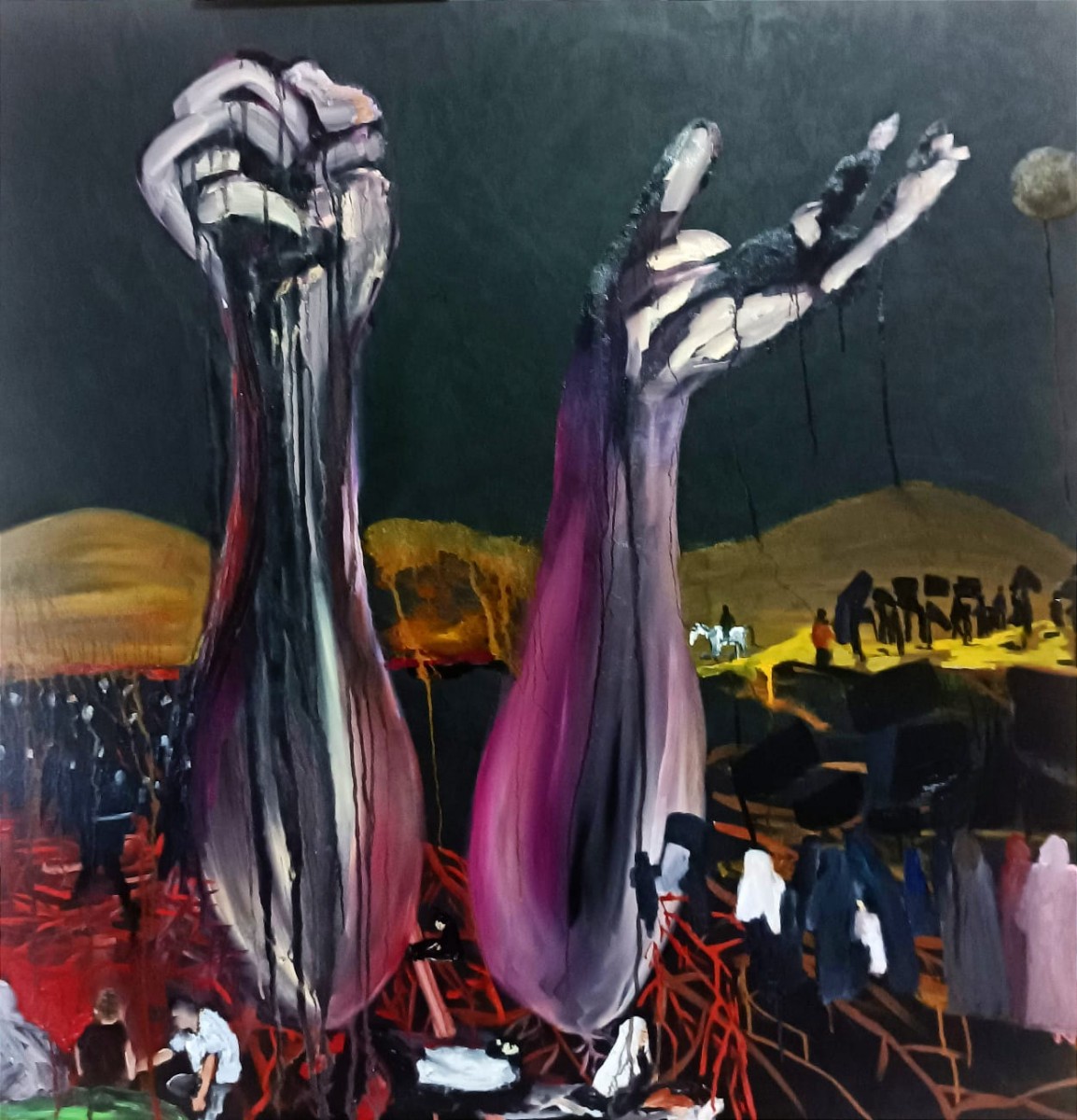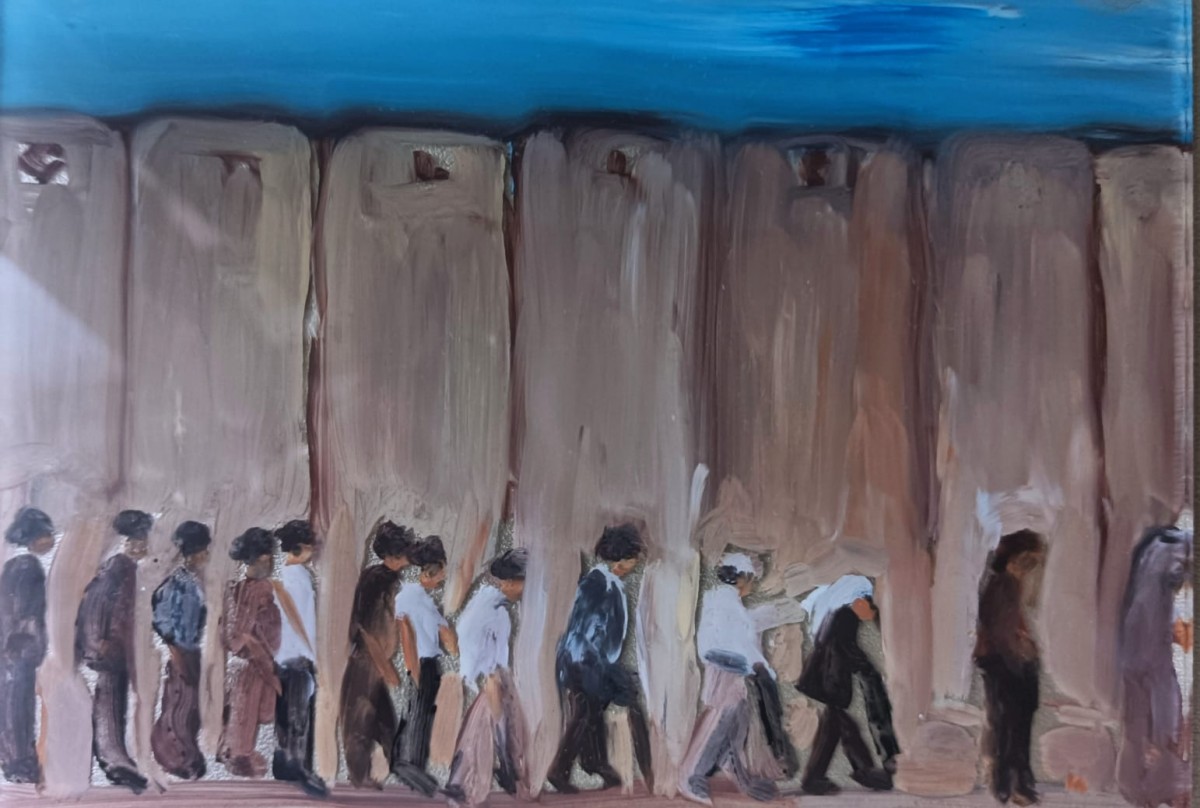I came to Israel 20 years ago from Argentina, carrying the wounds of a murderous dictatorship and neoliberalism that killed my country.
I grew up in a house with three floors and a pool, but in December 2001 when the state raided us, we had nothing to eat. The president announced on television that the country is under martial law and all the money disappeared from bank accounts.
People took to the streets in a manner that was spontaneous. There were millions of us. About 30 people were killed in those days as a result of violence at a police station, and two days later the president escaped with a helicopter along with all the bank managers.

And we were left to deal with a shattered country.
Twenty years before that, she was a dictatorship in which 30,000 left-wing activists were murdered, including about 2,500 Jews. They were thrown from planes into the river.
What was it to be leftist? It was to be a social activist, student, retiree, journalist, worker, housewife and even child. Just anyone who tried to oppose the dictatorship.
When the crisis happened in 2001, my family was afraid for my safety and suggested that I come to Israel. As an Italian citizen, I could also have gone to Italy, but because of my relationship with my Jewish grandparents from my mother’s side from a young age and my curiosity towards Israel, I went there instead.
As someone who grew up on socialist values, I thought this is what I wanted to try to realise in my life.

As a new immigrant, it was encouraging for me to see that I was given an allowance of 700 shekels to start building my life. Although it was a small amount, it was not taken for granted and I was always grateful for it. It took me many years to understand the language, culture and history of this place.
In Argentina, I volunteered at the Holocaust Museum from the age of 15, even though my family immigrated to Argentina from Syria and Lebanon and were not victims of the Holocaust.
The first time I felt racism towards me in Israel was when I found out that the language they spoke at my grandparents’ house was Arabic, and that I knew it better than Hebrew. This was something to hide and be ashamed of. Grandfather used to tell us that we were Jewish-Arabs; they lived peacefully, with both cultures together. It took me a while to understand this language is actually called “Mizrahim”.

I lived for several years in Kibbutz Tzuva and they were my family. Thanks to them I managed to integrate into society, work and study even though I barely knew the language. as
Coming from a place of social activism I couldn’t understand, why it didn’t exist here. Until my friends talked to me about that day in 1995 when they were at a demonstration for peace and experienced Rabin’s murder before their eyes. How can you ask them to go out and protest?
At that age, we went out into the streets and shouted at the dictators to tell us where the children they kidnapped are. We were who we were. For us, our parents had experienced intense trauma. In Israel, it was this very generation who had seen that trauma.
When I recently returned from Argentina, into the heart of the protests in Israel, I saw despair, fear and disappointment in your faces. These are the faces I remember from the crisis of 2001 in Argentina. The faces that were expressed so beautifully by Diego Rivera in his paintings.
It was sad to see those faces again – but I was also happy that you finally woke up and came to the realisation that you are not ready to be hurt by people who do not share the same ethics and morals as you.

I chose to be an activist-artist because over the years in Argentina, it was the artists who showed us the signs of what was happening and reminded us not to give up on our rights. Today, I feel that democracy is in danger; I have to think twice before I talk about a controversial topic.
You chose to be on the right side of history. Don’t let despair wear you down.
This is your time to fight non-violently. Persistence is your strength and may justice come in the end.
As they used to say with us, the impossible takes a little longer.
All paintings by Jessica Sharon.
Jessica Sharon is an artist-activist based in Israel.
